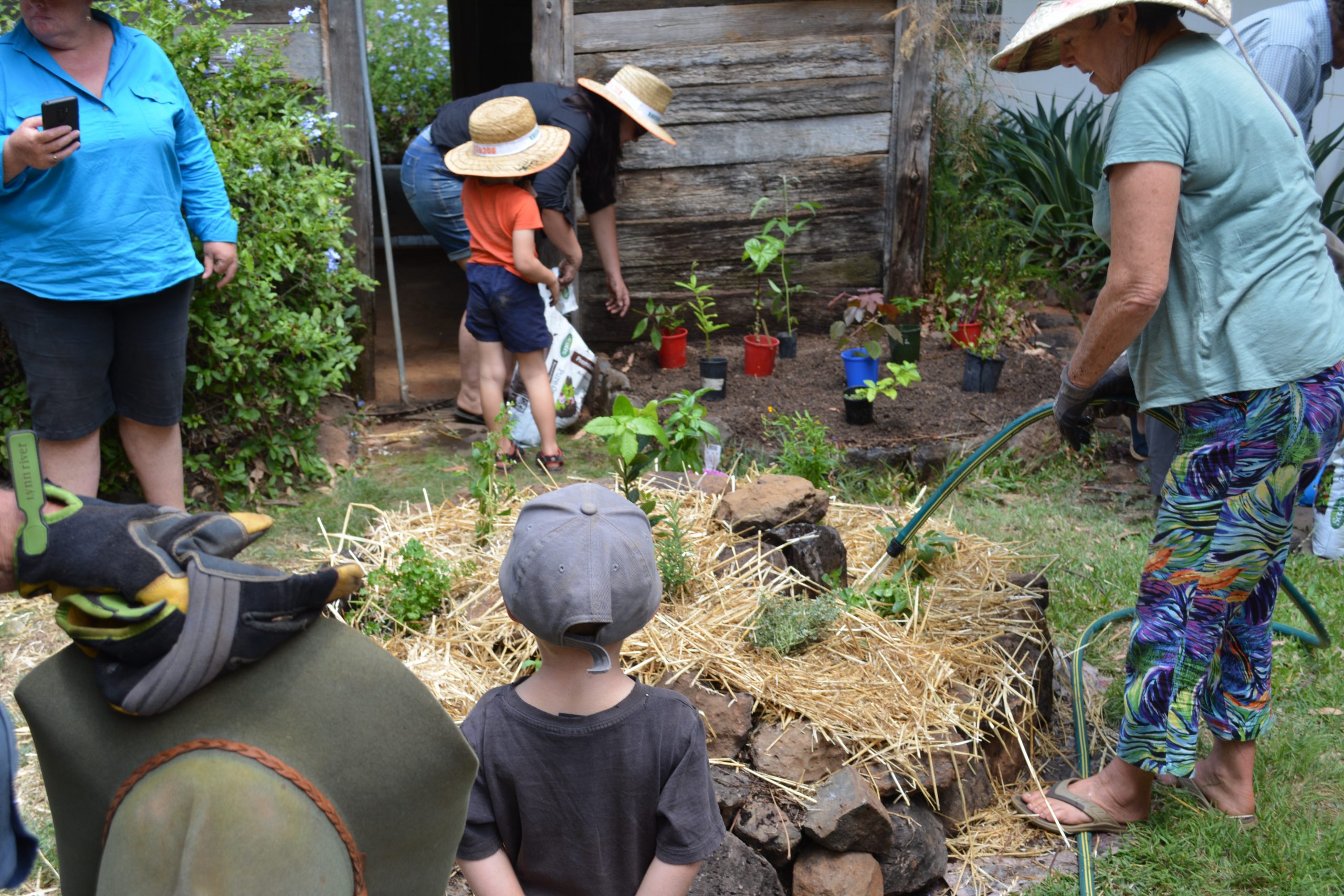Community stories: 31 March 2020
The Tablelands Region is around 150 km south-west of Cairns in Far North Queensland. Drought declared since May 2016, the community has been under significant pressure, specifically the grazing families in the west of the region. The residents in this area are located in remote settings, which can create challenges like difficulty accessing services, social isolation and lack of opportunities. There are very few regular social activities, as these areas are mostly cattle stations run by self-employed graziers.
In the past few years, the Tablelands Regional Council (TRC) and Northern Gulf Resource Management Group (NGRMG) have worked together to deliver a range of drought relief projects that contributed to connectedness, social wellbeing and increased access and awareness to support services.
They teamed up again to provide a series of gardening workshops to people in areas that have been drought declared to bring them together for new learning experiences that assist in their empowerment and resilience during difficult times, in a bid to promote social cohesion and wellbeing.

A $15,000 Tackling Tough Times Together grant, funded by the Tim Fairfax Family Foundation, enabled TRC to consult and engage gardening experts to design and deliver the workshops. The funding also covered ancillary costs such as the promotion of the events, catering and workshop materials.
In all, four drought-resilient gardening workshops were held, two at Pinnarendi Station and two at Woodleigh Station. The first workshops were held in November 2018 and were attended by 26 participants. The focus was on learning how to build a spiral herb garden utilising existing materials (upcycling) from around their properties. This included preparing the bed and understanding the design benefit for water-saving and planting complementary and seasonal plants, as well as making fertiliser out of existing resources.
The next round of workshops was held in May 2019, and 14 participants learnt to build wicking beds (self-watering gardens) and salad baskets out of hay bales.
Additionally, a morning/afternoon tea was held at each of the stations to discuss what they had learnt, evaluate the workshops and see how they would take any learnings into the future.
Project outcomes from the gardening workshops were significant for the participants who all stated in their evaluation that they had reconnected with old friends socially, and made new connections. From the beginning of the first workshop, participants were looking to increase their skills and knowledge. They reported that the benefit of receiving some plants to take home reinforced their commitment to translate their learnings to their gardens and build garden beds. The participants learnt to utilise their resources in different ways, which increased feelings of empowerment, as well as building resilience and sustainability.
Many of the participants have kept up their gardening and are noticing benefits for their whole family, including healthy living, self-confidence, new social connections, cost efficiency, self-reliance and wellbeing. Participating in the workshops has developed additional common ground between the participants and the community, which increases their social cohesion. Both groups decided to continue their gardening groups and rotate morning teas at each other’s gardens to maintain the connection and interest in their projects.
From all accounts, it certainly sounds as though the project succeeded in inspiring and empowering isolated communities to have some control to support their mental health with activities that are also coping strategies for personal challenges. One participant commented, “The workshops were wonderful opportunities for gardeners (of all levels) to get together; wellness at its best, thank you again!”

